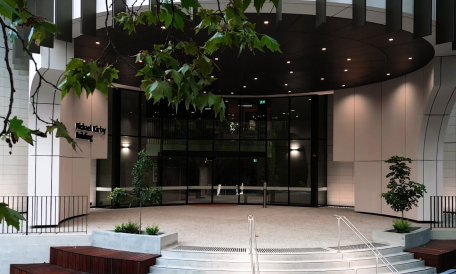Jaypee University of Information Technology (JUIT)
Mountain-top Jaypee University connects with peak performance

At northern India’s Jaypee University of Information Technology (JUIT), advanced fiber-optic networking is integral to a world-class learning environment. Founded in 2000, JUIT’s sprawling three-tiered Waknaghat campus encompasses over 7,000 sq meters of challenging terrain in need of a robust network to support campus venues and users. The campus ranges from student classrooms and laboratories to dormitories and a sports center—from administrative offices, auditoriums and a library to faculty residences and a large civil engineering department.
To provide the connection speed and network security vital to this diverse landscape, the university’s IT team turned to CommScope for a uniquely powerful, comprehensive mixed fiber and Wi-Fi solution.
Challenges:
- The rugged topography underlying the extensive school grounds resulted in spotty connectivity at many locations across the campus.
- Mobile network performance and quality were chronically inadequate for users attempting to access educational material and submit assignments wirelessly while on and off campus.
- To build a new benchmark in emerging technologies like IT and biotechnology, the campus community required a future-proof network that could easily scale almost without limit.
Solutions
- Over 160 RUCKUS® indoor APs
- ICX 7650/ 7150/ 7250 switches
- SmartZone network controller
- 4 kilometers of fiber-optic cable
Benefits
- The fiber network combines with wireless connectivity to deliver ubiquitous accessibility and reliable performance for more than 5,000 students and faculty.
- With the growing prevalence of multimedia, the network can seamlessly scale to support the university’s growing data and voice traffic, IP camera transmissions, wireless devices and other connected services.
- The cost-effective, scalable infrastructure enables an automated ERP system that has transformed operational efficiency across the university’s 18 major functions.



